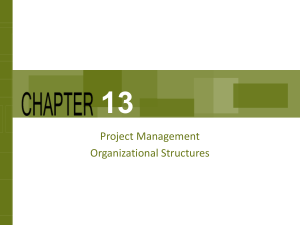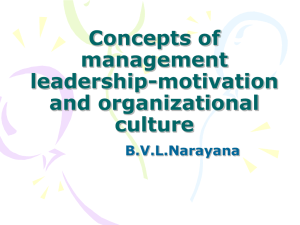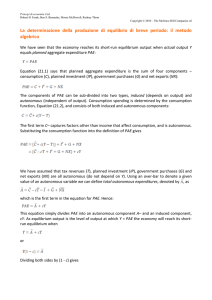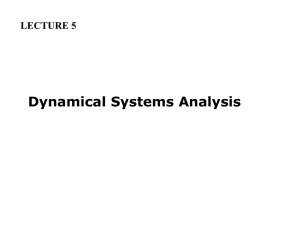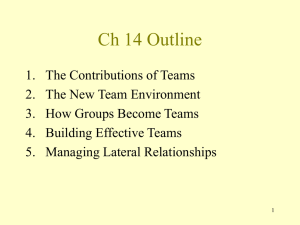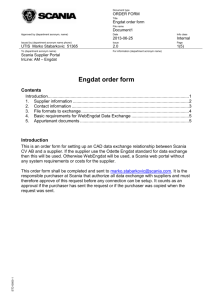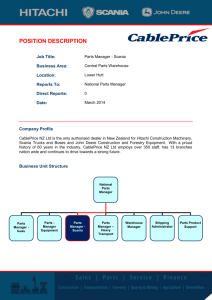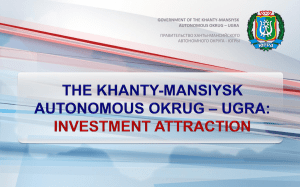the car is steering
advertisement
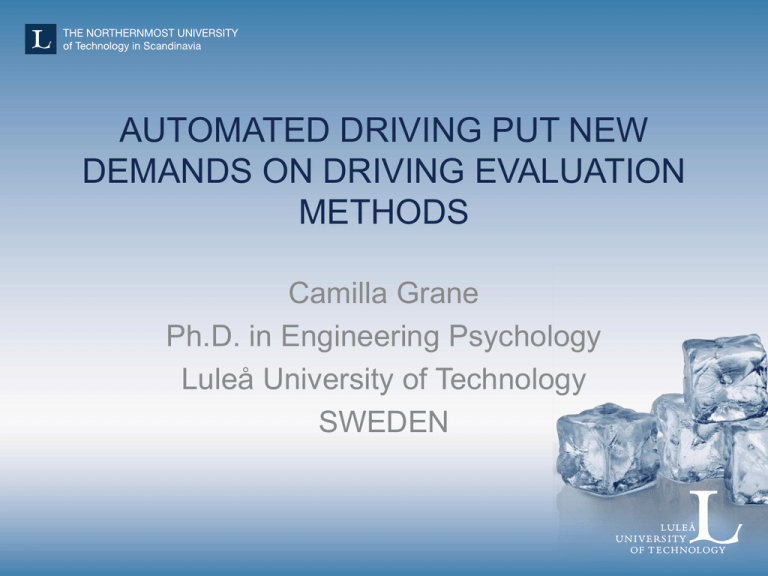
AUTOMATED DRIVING PUT NEW DEMANDS ON DRIVING EVALUATION METHODS Camilla Grane Ph.D. in Engineering Psychology Luleå University of Technology SWEDEN NEW PROJECT • NES 2012 – Presented a developed method for evaluating driving performance – Stas Krupenia representing SCANIA AB (trucks) asked ”what if the vehicles are autonomous” • MODAS – Methods for Designing Autonomous Systems – – – – Scania The Interactive Institute Uppsala University Luleå University of Technology NEW PROJECT • NES 2012 – Presented a developed method for evaluating driving performance – Stas Krupenia representing SCANIA AB (trucks) asked ”what if the vehicles are autonomous” • MODAS – Methods for Designing Autonomous Systems – – – – Scania The Interactive Institute Uppsala University Luleå University of Technology LEVELS OF AUTOMATED DRIVING • Assisting features – Cruise control – ABS-breaking –… • Semi-autonomous driving – The car direct or take over action when needed • Autonomous driving – The car is capable of sensing its environment and navigating without human input “THE SELF-DRIVING CAR IS LESS THAN A DECADE AWAY” • Alan Taub, vice president of Global Research and Development at General Motors, www.autoguide.com GM, www.AUTOGUIDE.com MEANING, KITT WILL BECAME REALITY • Autonomous car in Knight Rider, 1982 ALREADY HISTORY (AS DEMO CARS) • 1926: Achen Motor demonstrated the radio-controlled "phantom motor car" at the streets of Milwaukee • … • 1960: RCA Corporation demonstrated a driverless car which drove on an "electronic highway" – a road with electronics built into the asphalt that could determine the presence and velocity of any metallic vehicle on its surface. • … • 2001: the US Government demonstrated the ability of unmanned ground vehicles to navigate miles of difficult off-road terrain, avoiding obstacles such as rocks and trees. • … • Today there are several autonomous demonstration cars ONE EXAMPLE… BMW 5-series CDC ConnectedDrive Connect www.BMWCOOP.com THE FUTURE IS CLOSE THE FUTURE IS CLOSE The 2014 Mercedes S-Class will have the option of autonomous steering, breaking, lane guidance, accident avoidance, and driver fatigue detection THE FUTURE IS CLOSE The 2014 Mercedes S-Class will have the option of autonomous steering, breaking, lane guidance, accident avoidance, and driver fatigue detection By 2020 Volvo expects accident-freecars and ”road trains” in which individual cars are electronically guided by a driver in a lead vehicle THE GOALS WITH AUTOMATED DRIVING • Increase driving safety • Increase environmental savings • And to make it alright to send that SMS… NEGATIVE EFFECTS UNKNOWN • New systems designed to support and help could also cause problems – Cruise-control make drivers passive and affect their break reaktion time negativelly • Automation systems will change the role of the driver from active to passive – How passive is OK? Is it OK to fall asleep? How should autonomous systems be evaluated, what are the possible negative effects??? MEASURING PERFORMANCE • Evaluation measures used today: – – – – Lane keeping Break reaktion time Hazard detection … MEASURING PERFORMANCE • Evaluation measures used today: – – – – Lane keeping Break reaktion time Hazard detection … • These measures will become meaningless in the future MEASURING PERFORMANCE • Evaluation measures of today: – – – – Lane keeping - the car is steering Break reaktion time Hazard detection … • These measures will become meaningless in the future MEASURING PERFORMANCE • Evaluation measures of today: – – – – Lane keeping - the car is steering Break reaktion time - the car controlls the breaks Hazard detection … • These measures will become meaningless in the future MEASURING PERFORMANCE • Evaluation measures of today: – – – – Lane keeping - the car is steering Break reaktion time - the car controlls the breaks Hazard detection - the car detects obstacles … • These measures will become meaningless in the future OUR CHALLANGE • Define the new driver role • Define critical situations • Develop new test methods • • • • • Situation awareness? Drowsiness? Alertness? Trust? … • • • • Trustworthiness? Guessability? Usability? … Camilla Grane CAMILLA GRANE camilla.grane@ltu.se M.Sc. in Ergonomic Design and Production Engineering Ph.D. in Engineering Psychology Department of Human Work Sciences Luleå University of Technology, LTU Main interests: How to improve safety and human-machine-interaction in vehicles and in the mining industry

